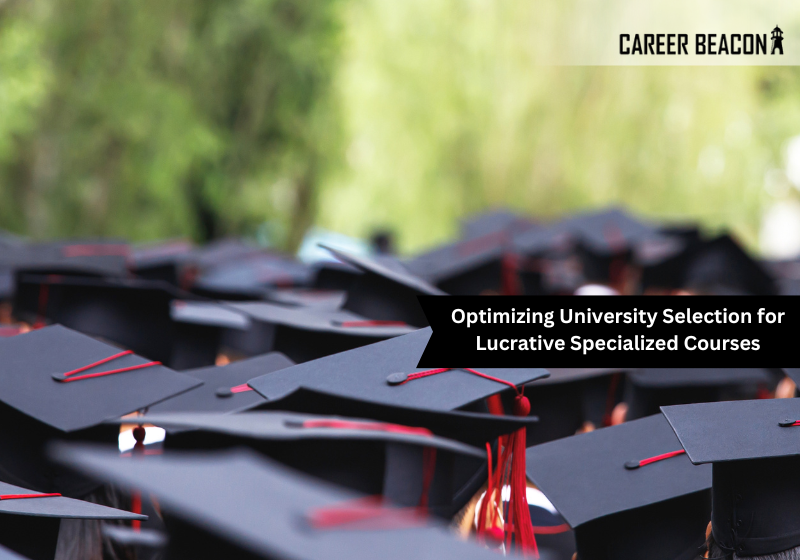
Optimizing University Selection for Lucrative Specialized Courses
In today’s dynamic job market, making a well-informed decision about university selection becomes pivotal for securing a rewarding career. Choosing the right degree program that aligns with your interests and offers high earning potential is crucial in the rapidly evolving professional landscape. Specialized courses are gaining prominence over traditional degrees, and the selection of a university plays a paramount role in this process.
Here are key considerations for prospective students to keep in mind while focusing on university selection and making an informed decision:
Align Course and Specialization with Professional Goals
Thorough research on in-demand skills and specializations that are highly valued in the industry is essential. Matching personal interests with courses that align with professional choices ensures a comprehensive and meaningful educational experience.
Examine Placement and Internship Reports
Evaluate the placement records of universities, emphasizing median salary figures for alumni. Understanding what to expect after completing a degree aids in making informed decisions. Additionally, universities that facilitate internships through strong industry connections can significantly enhance career prospects.
Leverage Alumni Network
A robust alumni network is an invaluable asset for students, providing potential career referrals and internship opportunities. Universities with strong alumni connections contribute to a supportive and influential professional network.
Explore Financial Aid and Scholarships
Considering the financial investment involved in pursuing higher education, students should explore available financial aid and scholarships offered by the university. This information can help alleviate financial burdens and make education more accessible.
Consider Geographical Location
The location of the university plays a crucial role throughout the study period. Proximity to potential industries and career markets simplifies internship arrangements and networking opportunities. Being near industry events can enhance overall exposure and job prospects.
Verify Accreditation and Faculty Credentials
Ensuring the accreditation status of both the program and the institution is essential for securing reputable positions in the job market. Highly skilled faculty with significant industrial expertise enhances the quality of education and career preparation.
Evaluate Return on Investment (ROI)
Comparing post-study earning potential with the cost of education is critical. While reputable universities may have higher tuition fees, the investment often translates to superior education quality and increased earning potential upon graduation.
Selecting a university and coursework that prioritize high earning potential is a strategic decision that shapes a student’s financial future. Emphasizing university selection based on careful examination of the coursework, alignment with essential skills, and passion ensures a well-rounded educational experience.


